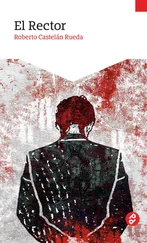Her heart contracted, and she got out of the Jacuzzi steeped in guilt.
While she was drying her hair she remembered that yesterday, when they gave her mother an EKG, they told her she had the heart of a thirty-year-old, and how happy it made her. The cardiologist said that it wasn’t a compliment but a fact. All day Mandy basked in this fact, because she always felt bad about not taking part in serious sports with an emphasis on heart-lung endurance.
“You see?” she said to Lirit, “And you nag me for not going to a gym.”
“I never nagged you, I just said that physical activity would do you good. It can also dispel anxiety. Endorphins.”
“Okay okay okay,” Mandy dismissed her, “you know everything. About endorphins too.”
Mandy had a lot of anger against Lirit in her heart, at this moment and in general. She was not satisfied with the rate of her daughter’s progress in life, even though she had never asked herself: Progress to where? And to what? Except perhaps once or twice when the girl was a teenager.
After they made up, Mandy urged her daughter to go to the factory, “So things won’t descend into anarchy there like in the Palestinian Authority.”
“In any case I have to go in for a tête-à-tête with Dr. Carmi Yagoda,” she reinforced her words.
“Can’t I come with you?”
“No,” commanded Mandy and went into the room, leaving Lirit to drive to the family factory.
YAGODA EXPLAINED EVERYTHING again to Mrs. Amanda Gruber from beginning to end, all the stages of the operation. Afterward he asked her to remove her blouse and bra, and to lie on her stomach and not to move. He concentrated and marked the place with Indian ink where the new shoulder blades she had chosen would be installed. And then he let her sit up and showed her, with the help of two mirrors, the sketch he had drawn. Mandy nodded her head to signify her approval, and while she was getting dressed Yagoda told her that up to recently shoulder blade surgery had been a much more complicated business, since the surgeon had to find the two original shoulder blades which had been absorbed by the back, and to return them to their rightful place, more or less symmetrically, and to sharpen the point of the shoulder blade which had been blunted by time. Many women were shocked after the operation. The new operation had been preceded by a courageous conception of surrender to the ravages of time: what was gone was gone, never to return, and therefore it was necessary to take out the used shoulder blades and replace them with new ones. The points of the shoulder blades, points, evident when the hands were moved, the patient could choose according to her taste, before the surgery was performed. Mandy had already chosen.
SHORTLY BEFORE THE OPERATION, when the nurse came to give Mandy a shot, she also asked her if she would have any objections to being photographed to advertise Medical Frontline. She was the fiftieth woman in Israel to have the operation. But Mandy refused point blank. All her life she had run away from publicity, and not because she couldn’t rub shoulders with the highest in the land, if she wanted to.
She simply didn’t like going anywhere with her husband, and avoided being seen with him in public. Sometimes, when both of them had to leave the house, he in the Buick and she in a taxi, she would linger over her makeup, or her eyeliner, just so they wouldn’t leave the house together.
Only on rare occasions did the Grubers go as a couple to a cocktail party hosted by a colleague in the scientific field, or by some big bug in the secret service, the Mossad, or the aircraft industry. In all the years of their marriage, they went out to a restaurant together twice. Mandy detested all that “Pleased to meet you,” “How well you look,” “So glad you could come. .”
It was time for the general anesthetic she was waiting for. She lay in surrender on the operating table, under the bright lights.
Everyone was dressed in green with masks on their faces, and they treated her like a child. They called her sweetheart and meideleh , and said nu, nu, nu , too, as if she was a naughty little girl. She liked this strange pampering. The operating-room nurse asked her to turn over and lie on her stomach if she didn’t want her shoulder blades in front. The anesthetist said, “No no. First I put her under and then we turn her over.”
“As you wish,” said Dr. Carmi Yagoda and moved aside, and the anesthetist jabbed her. Mandy managed to turn over by herself, and then she was obliterated. The nurse put a green sheet on her back and folded it. Only the area of Mandy’s upper back was left exposed, and on it the outlines of the operation that Dr. Yagoda had sketched the day before.
FLYING COACH CLASS to New York did not suit a man of Irad Gruber’s position. People squeezed into their seats like chickens in a coop. Nobody had told him that there would be a two-hour layover in Paris. And all around him was a group of hyperactive fifteen-year-old boys, the sons of ex-Israelis living in Chicago, whose two counselors were unable to control them. Gruber thought it was the worst flight of his life.
Earlier, on the ground, he had tried to upgrade his ticket. He was used to flying business class and there was no reason on earth why he should accept a drop in his standard of living now. But the ground attendant at boarding told him that business class was full, that all the seats next to the emergency exits were taken, and there were no window seats left.
Gruber felt as if he was trapped in a flying cage. Rubbing shoulders with the loudmouthed masses of the people of Israel made him ill. Now he had no doubt that his status in the eyes of the Defense Minister had taken a dive, the only question was when the dive would be arrested and his body would hit the ground and they would bury him together with the whole TESU project.
The TV screen on the back of the seat in front of him showed the temperature outside and the distance from the unexpected destination city: Paris. He switched channels. Actors too young for him to know their names appeared, making the movie of no interest to him. He looked for quiet music on the audio channels, found the oldies channel, and listened to Diana Ross and Marvin Gaye singing “You are everything and everything is you.”
At Charles de Gaulle Airport he got off and waited, according to instructions, in an isolated hall with cold croissants on plastic plates and a hot water urn that refused to come to a boil.
When the call to return to the plane came over the loudspeaker, he grumbled out loud, making some critical remark, but the other passengers, who heard him, failed to react. Despite the fact that he himself was an inventor and discoverer, he was not in the least impressed by the invention of the airplane. He had irritable bowels, and he swallowed a pill.
In the heights over the Atlantic there was a storm, and the captain said, “This is your captain. Passengers are requested to fasten their seatbelts and remain in their places.” As soon as the storm calmed down, the food arrived. Gruber lifted the aluminum lid from his meal and saw what it was he was supposed to eat. He was surrounded on all sides.
He hardly ate a thing, and signaled for his tray to be removed. The flight attendant who arrived was very ugly and she looked sadly at his tray and at him, as if she herself had prepared the meal. She and her colleagues had done their best to improve the conditions of the flight for the grumpy passenger in 48H, they had helped the two Americans to control the youths from Chicago, gone back and forth to bring Gruber another blanket that didn’t scratch, an extra pillow, more water, more coffee.
Around him, sleep had fallen on everyone. He was amused by the fact that the flight attendant took an interest in his future wishes too: “Would you prefer beer or water to drink?” He could hardly pour the beer, because the storm wasn’t really over, and there was no room for him to raise his elbows either. The beer made his stomach feel even worse, and he really needed to go to the toilet.
Читать дальше












